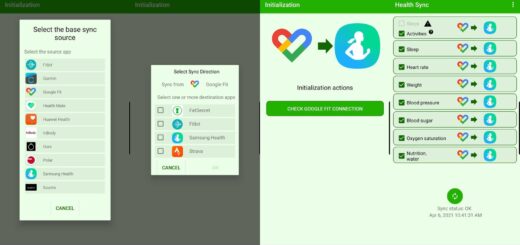How to Save Money on Your Auto Insurance Premiums
Auto insurance can be a costly expense for many people. However, there are several ways that you can save money on your auto insurance premiums without sacrificing coverage. In this article, we will discuss some of the most effective ways to lower your auto insurance premiums and help you save money in the long run.
Table of Contents
- Understand Your Coverage Needs
- Shop Around for the Best Rates
- Take Advantage of Discounts
- Consider Raising Your Deductible
- Maintain a Good Driving Record
- Drive a Safe Vehicle
- Pay Your Premiums Annually
- Bundle Your Insurance Policies
- Consider Usage-Based Insurance
- Review Your Policy Annually
- Don’t Over-Insure Your Vehicle
- Opt for Liability Coverage Only When Appropriate
- Don’t Let Your Policy Lapse
- Seek Advice from an Insurance Professional
- Conclusion
1. Understand Your Coverage Needs
Before shopping around for auto insurance, it’s essential to understand your coverage needs. Different states have different minimum coverage requirements, and your personal circumstances will also play a role in determining the type and amount of coverage you need. For example, if you have a newer vehicle, you may want to consider comprehensive and collision coverage, whereas liability coverage may be sufficient for an older car.
2. Shop Around for the Best Rates
One of the easiest ways to save money on auto insurance is to shop around for the best rates. Don’t just go with the first insurance company you come across – take the time to research and compare rates from different providers. Consider using an online comparison tool to get quotes from multiple companies quickly and easily.
3. Take Advantage of Discounts
Most insurance companies offer discounts for various things, such as good driving records, safety features on your vehicle, and bundling multiple policies. Be sure to ask about available discounts when getting quotes and take advantage of them whenever possible.
4. Consider Raising Your Deductible
If you’re willing to take on a higher out-of-pocket expense in the event of an accident, consider raising your deductible. A higher deductible typically means lower monthly premiums, but you’ll need to pay more upfront if you get into an accident.
5. Maintain a Good Driving Record
Maintaining a good driving record is essential for keeping your auto insurance premiums low. Avoid accidents and traffic violations whenever possible, and consider taking a defensive driving course to improve your driving skills and potentially qualify for a discount.
6. Drive a Safe Vehicle
The type of vehicle you drive can also impact your auto insurance premiums. Vehicles with high safety ratings and advanced safety features may be eligible for lower premiums. Conversely, sports cars and vehicles with a higher risk of theft may result in higher premiums.
7. Pay Your Premiums Annually
If you can afford to do so, paying your auto insurance premiums annually rather than monthly can save you money in the long run. Many insurance companies offer discounts for paying upfront, which can add up over time.
8. Bundle Your Insurance Policies
Bundling your auto insurance with other policies, such as homeowners or renters insurance, can result in significant savings. Many insurance companies offer discounts for bundling, so it’s worth considering if you need multiple types of insurance coverage.
9. Consider Usage-Based Insurance
Usage-based insurance is a relatively new type of auto insurance that uses telematics technology to track your driving habits. By proving that you’re a safe driver, you can potentially qualify for lower premiums. If you don’t drive often or have a short commute, usage-based insurance may be a good option for you.
10. Review Your Policy Annually
It’s essential to review your auto insurance policy annually to ensure you have the coverage you need and are getting the best rates possible. Your circumstances may have changed over the past year, and your insurance needs may have changed as well. Additionally, insurance companies may adjust their rates or offer new discounts, so it’s worth reviewing your policy and comparing rates at least once a year.
11. Don’t Over-Insure Your Vehicle
While it’s essential to have adequate coverage, you don’t want to over-insure your vehicle. If you have an older vehicle, for example, you may not need comprehensive or collision coverage, which can significantly increase your premiums. Consider your vehicle’s value and your financial situation when determining the amount and type of coverage you need.
12. Opt for Liability Coverage Only When Appropriate
If you have an older or less valuable vehicle, liability coverage may be sufficient. Liability coverage will cover damages you cause to other vehicles or property in an accident, but it won’t cover damages to your vehicle. Opting for liability coverage only can significantly reduce your premiums, but it’s essential to consider the potential financial impact if you’re in an accident and don’t have adequate coverage.
13. Don’t Let Your Policy Lapse
Letting your auto insurance policy lapse can result in significantly higher premiums when you’re ready to purchase a new policy. Additionally, if you’re caught driving without insurance, you can face fines and other legal consequences. Be sure to make your payments on time and keep your policy active to avoid these potential issues.
14. Seek Advice from an Insurance Professional
If you’re unsure about the type or amount of coverage you need, consider seeking advice from an insurance professional. An agent or broker can help you understand your options and find the coverage that’s right for you. They can also help you take advantage of available discounts and ensure that you’re not overpaying for coverage you don’t need.
15. Conclusion
Auto insurance is a necessary expense for most drivers, but there are several ways to save money on your premiums without sacrificing coverage. By understanding your coverage needs, shopping around for the best rates, taking advantage of available discounts, and following some of the other tips outlined in this article, you can reduce your auto insurance costs and keep more money in your pocket.
Related Links:
- https://www.iii.org/article/how-much-auto-coverage-do-i-need: This article from the Insurance Information Institute provides information on how to determine the right amount of coverage for your auto insurance policy.
- https://www.consumerreports.org/car-insurance/how-to-get-cheap-car-insurance/: This article from Consumer Reports offers tips for getting cheap car insurance rates without sacrificing coverage.
- https://www.edmunds.com/car-insurance/how-to-get-affordable-car-insurance.html: This article from Edmunds provides advice on how to get affordable car insurance, including tips on choosing the right coverage and taking advantage of discounts.
- https://www.bankrate.com/insurance/car/how-to-lower-car-insurance/: This article from Bankrate offers advice on how to lower your car insurance premiums, including tips on raising your deductible, improving your credit score, and bundling policies.
- https://www.allstate.com/tr/car-insurance/tips-for-finding-affordable-auto-insurance.aspx: This article from Allstate offers tips for finding affordable auto insurance, including advice on shopping around for the best rates, taking advantage of discounts, and choosing the right coverage for your needs.
















It's great that you talked about how business insurance can provide financial protection against unexpected events and help ensure the…
I like that you mentioned how business insurance is essential for protecting your bottom line and the long-term viability of…